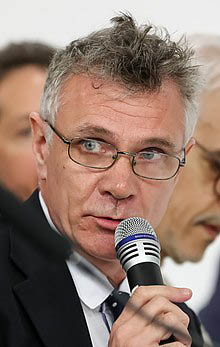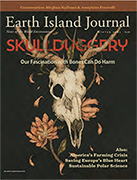
Dominic Phillips
In a column for NBC News, Knight Center director Eric Freedman discusses how the recent murder of British journalist Dom Phillips in the Brazilian Amazon is a grim reminder of the perils that reporters face when covering controversial environmental issues and events.
Freedman, who researches challenges and obstacles to environmental coverage, puts the murder of Phillips and the Indigenous rights activist who accompanied them into the context of how powerful and greedy interests use violence, threats, economic clout, unfair laws, abuse of authority and political ruthlessness to prevent independent reporting on topics such as illegal mining and logging, poaching and pollution.
Freedman’s column also explains how such attacks on environmental journalists occur around the world, including in the U.S. and Canada, and how those responsible usually face no punishment.

 Knight Center director Eric Freedman explores the dark world of illegal trafficking of wildlife skulls in “The Bone Collectors,” the
Knight Center director Eric Freedman explores the dark world of illegal trafficking of wildlife skulls in “The Bone Collectors,” the